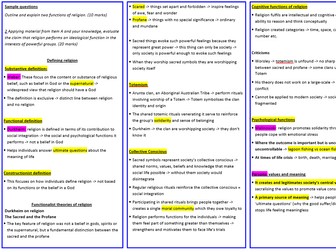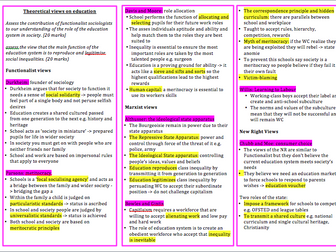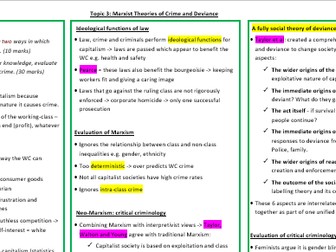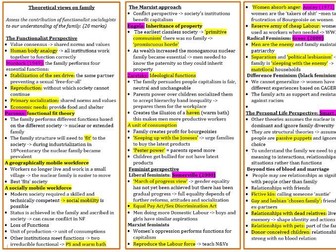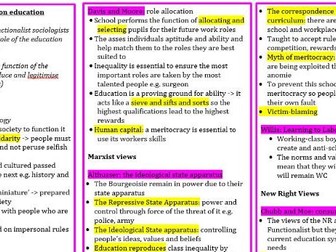AQA A Level Sociology revision plans: Beliefs in Society
<p>Revisions plans summarising key content, studies and studies and names for the whole of the Beliefs in Society unit. Each plan has summaries mainly taken from Webb and Westergaard and Browne textbooks. Key names and key terms are highlighted, topics include:<br />
-Ideology and science</p>
<ul>
<li>Organisations, movements and members</li>
<li>Religion and social change</li>
<li>Religion in a global context</li>
<li>Religion renewal and choice</li>
<li>Secularisation</li>
<li>Theories of religon</li>
</ul>
